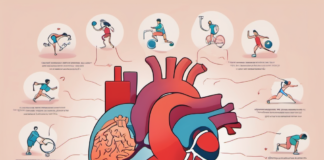Diabetes is a metabolic disease that occurs when an individual has high blood sugar, due to insufficient production of insulin in the body or as a result of the body cells not responding to insulin.
Diabetes is a disease whose profile is on the continual rise in Nigeria. In 2015, over 1.5 million case of diabetes was recorded nationwide. In view of this, the Federal Government of Nigeria has been urged by stakeholders and health professionals to make diabetes screening a routine in most hospitals across the country. Health experts are also encouraging Nigerians to have knowledge of their diabetes status in order to avoid future health complications. This plea was made recently during an interactive session in Lagos to mark the 2016 World Diabetes Day themed – Eyes on Diabetes.
It was stated that diabetes screening routine such as hypertension and high blood pressure would really help in detecting a good number of people living with this disease without knowledge.
However, Dr. Afoke Isiavwe, a Medical Director at Rainbow Hospital, Lagos, said, “Diabetes is tending towards becoming an epidemic disease in Nigeria and it’s appalling that millions of Nigerians out there don’t actually know their STATUS.”
She went further to state some facts urging and warning Nigerians who already have this disease to watch against diabetic foot, to prevent amputation and other complications of the diseases and avoid walking bare-footed.
“There are over one million amputation among people living with diabetes every year and a limb is lost to diabetes every second; patients with diabetes have a higher chance of lower limb amputation than those without diabetes.
Therefore individuals with diabetes should be very careful; do regular check up on their feet daily to watch against swellings, numbness, red spots, cuts and blisters and avoid walking around without shoes.
Afoke further made some indications that, a sore on the leg is a serious indication that such person needs an emergency treatment, because 85 percent of diabetic amputation precedes a sore on the leg region.
Hence, early detection, self monitoring of blood glucose would really help diabetic patients in gaining metabolic control over the risk of hyperglycemia and hypoglycemia.
However Mr. Hameed Abiodun AFinowi, Chairman Diabetes Association of Nigeria, Lagos Chapter, laid emphasis on some challenges most Nigerians living with diabetes face, which include increment in price of their medications, stripes, glucometer and insulin.
Therefore, the government has been implored to help reduce the cost of medications for people living with diabetes.









